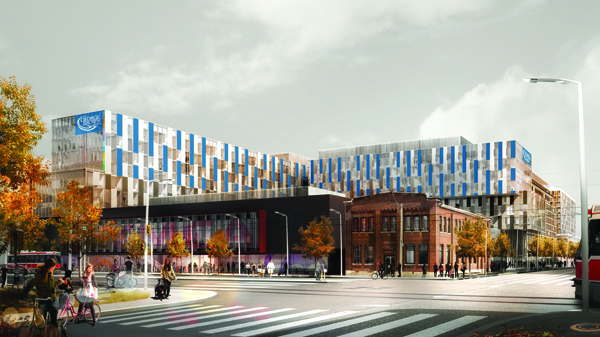Hong Kong students continue to lead the Umbrella Revolution for democratic reform
Photo courtesy of Willy AuYeung/Flickr creative commons
TORONTO (CUP) — Hong Kong has undergone the most turbulent period of mass protests since 1967 as students have played a decisive role in a fight for real democracy.
On Aug. 31, China announced that all citizens of Hong Kong will be able to elect their Chief Executive in 2017 as a promised democratic reform. However, China also said that the candidates must be the two or three people selected by a nomination committee that is seen as friendly to Beijing.
This tricky reform triggered the Hong Kong Federation of Students (HKFS) to call for a week-long class boycott on Sept. 22 of all Hong Kong tertiary education institutions.
The Hong Kong government gave no response to the class boycott and sit-down strike that brought the students to besiege the government headquarters.
On Sept. 28, police fired 87 tear gas canisters, powerful pepper spray, and an unknown number of plastic bullets at the protesters. In response, more than 100,000 citizens took to the streets, occupying Hong Kong’s main business areas as their bargaining chip to force the government to withdraw the election restriction.
That kicked off an unprecedented pro-democracy movement that some foreign media have called the Umbrella Revolution.
The movement is ongoing, even as intimidators have reportedly punched and beaten demonstrators. But the HKFS announced they will not withdraw.
The Hong Kong government said they will not even offer a conversation with the students who refuse to go home.
Timothy Chan, 20, is a second-year student at the Hong Kong University of Science and Technology. He suffered tear gas and pepper spray while protesting several times. He has still gone to the street every day since Sept. 22.
”What have I learned from this movement? I think it’s the importance of knowledge, only knowledge can make change of our world,” said Chan.
“I know (occupying business areas) is not the only way to achieve our goal, but if we don’t go, then who?” he added. “My friend said, ‘persistence is victory.’ I do believe it is true.”
Ethan Han, 27, is a first-year student in financial planning at George Brown College who was born in mainland China.
“I can understand and fully support what the Hong Kong people have done,” said Han. “For this year I am living in Toronto. I enjoy that all my human rights have been respected by everyone; I enjoy that all the chances I came across can be gained by fair competition. I know they are all about democracy.
“Looking as people in Hong Kong strive for their good future, I can relate,” said Han. “I hope one day my kids and my family will live in a fair and just world where we don’t need to strive for freedom or for democracy.”
Han added: “I don’t think everybody should vote, but as a Chinese, a mainland Chinese, if one day I can vote but I give up this privilege, that would be an unforgivable mistake.”
Andrew Leung, 20, is a third-year student in political science at the University of Toronto. He was born in Hong Kong but has lived in Toronto for four years.
As one of the leaders of the Ontario United Front of Hong Kong Students (OUFS), Leung organized a demonstration at the U of T to support the Umbrella Revolution, which drew more than 1,000 participants.
“I felt interested in politics since I was in high school. I found it’s only being involved in politics that can make change in the world. But these years, seeing what the politicians did, I already have no expectations for them,” said Leung.
“I always believe that good things only can be done by persistence. It was proven by this movement,” he said. “I am so proud of what the Hong Kong students have done. They made me feel that Hong Kong still has hope. I definitely believe that.”




